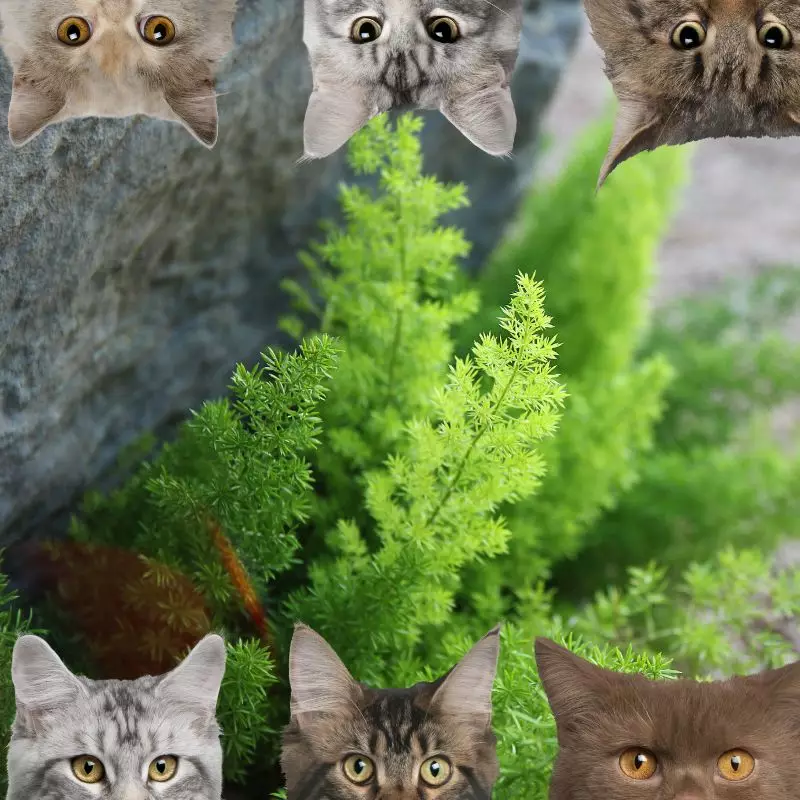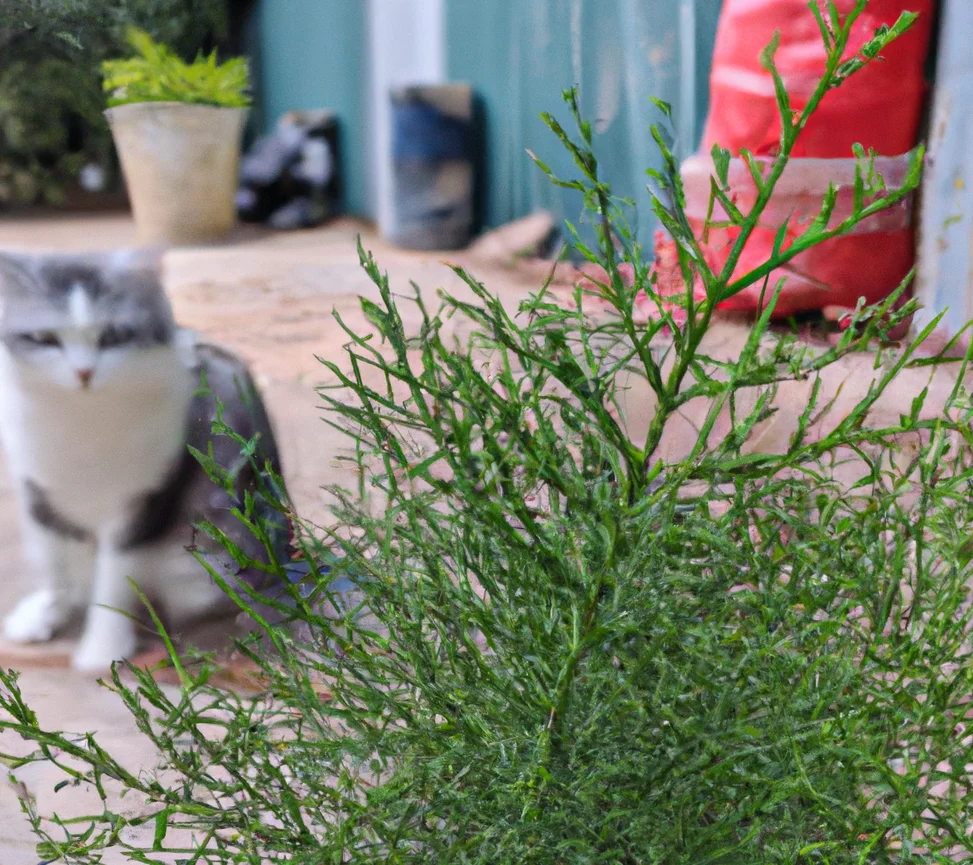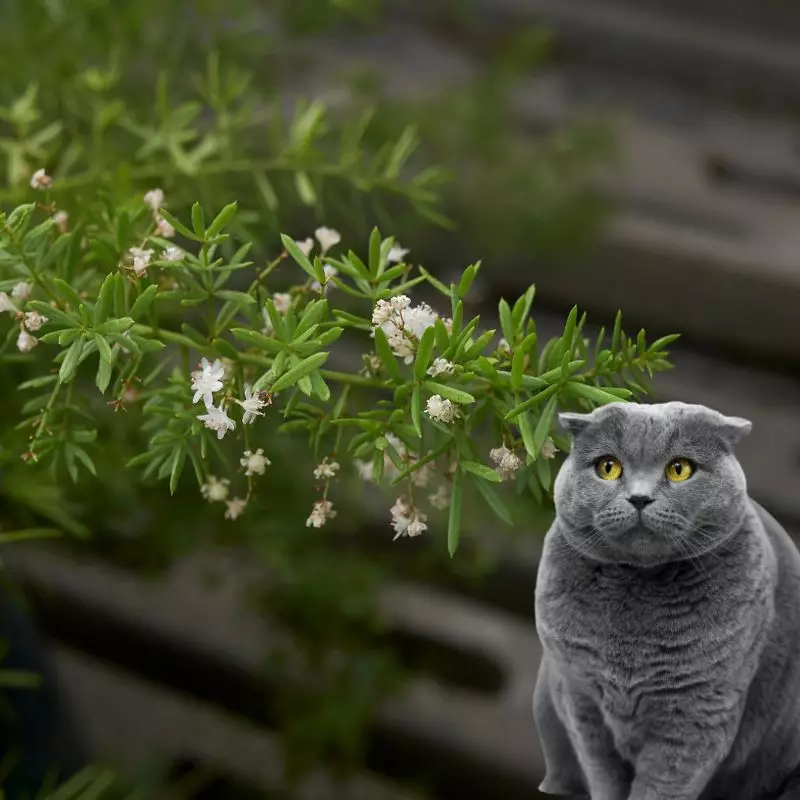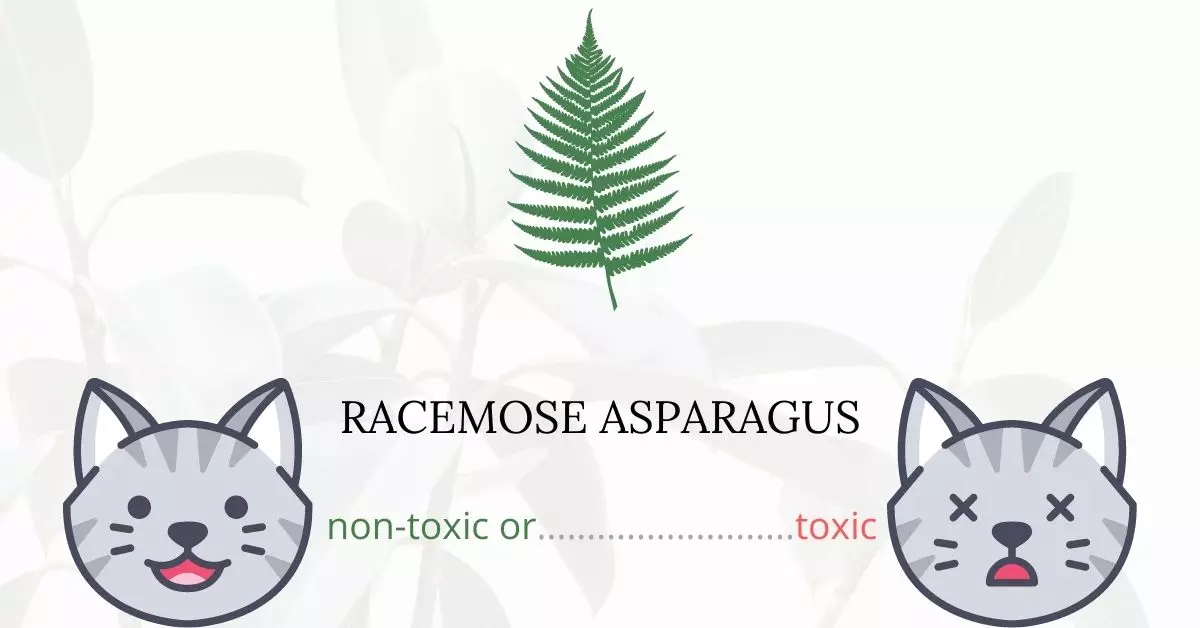Racemose Asparagus, also widely recognized as Shatavari, is typically not toxic to cats when consumed in small, moderate amounts; however, ingestion in large quantities or over extended periods can result in severe repercussions. This petite shrub contains substances known as sapogenins, which can irritate a cat’s mouth, stomach, and lower digestive tract.
This article has been meticulously developed in collaboration with a team of seasoned Doctors of Veterinary Medicine (DVMs). Their invaluable insights and contributions enable us to deliver precise and current information regarding the potential risks of various plants, in this instance, Racemose Asparagus, and their implications on feline health. Additionally, our assertions and findings are substantiated by extensive research from high-authority and credible sources such as ASPCA and PetMD, ensuring a comprehensive understanding of every plant discussed.
Clinical Signs of Racemose Asparagus Poisoning in Cats

Upon exposure to Racemose Asparagus, specifically through contact, inhalation, or ingestion, cats might experience various clinical symptoms that signify potential poisoning:
- Allergic Dermatitis: Cats can develop allergic reactions on their skin when repeatedly exposed to Racemose Asparagus. The compounds in the plant can lead to inflammation and irritation, manifesting as redness, itchiness, and swelling. This is particularly noted when the cat’s skin repeatedly comes in direct contact with the plant.
- Anorexia: If a cat consumes parts of the Racemose Asparagus, particularly its berries, it may display a sudden loss of appetite or a reduced desire to eat. This reaction is often due to the gastrointestinal discomfort caused by the plant’s irritants.
- Diarrhea: The sapogenins present in the plant can disrupt the regular digestive process in cats, leading to frequent and loose stools. This is a sign that the cat’s digestive system is attempting to rid itself of the ingested toxins.
- Vomiting: A cat’s body might react to the toxic substances in Racemose Asparagus by inducing vomiting. This is a defense mechanism to expel the harmful components before they can cause further internal harm.
- Abdominal Pain (with prolonged exposure): Continuous or excessive consumption of Racemose Asparagus can lead to chronic irritation in the cat’s stomach and intestines. This irritation can result in persistent abdominal pain, indicating prolonged exposure and potential damage to the digestive tract.
It’s essential to observe your cat for these signs and consult with a veterinarian immediately if you suspect Racemose Asparagus poisoning. Early intervention can mitigate potential health risks.
First Aid and Treatment of Racemose Asparagus Poisoning in Cats

Toxins from racemose asparagus poisoning in cats are removed from the body by limiting the subsequent intake of the plant. The feline’s mouth will be flushed with distilled water, and an emetic medicine will be given to stimulate vomiting. The veterinarian will most likely prescribe activated charcoal to bind with toxins and remove them through the digestive tract.
The veterinarian may prescribe Kapectolin if the plant has irritated the cat’s stomach, it is a medication that covers the stomach’s wall with a thick layer. Sucralfate, which forms a paste-like layer between the stomach contents and the stomach’s soft tissues when mixed with stomach acid, may also be given by the veterinarian. To help restore hydration, intravenous fluids may be given.
Recovery from Racemose Asparagus Poisoning in Cats

Racemose asparagus poisoning has a good to excellent prognosis in cats. Within an hour of treatment, most cats will show indications of improvement and will recover completely within 24 hours. The earlier the kitty is admitted to the veterinary facility for plant toxicity treatment, the better the chances of a full recovery.
Prevention of Racemose Asparagus Poisoning in Cats
Avoid bringing racemose asparagus to your home to prevent cats from exposure. Use a playpen or cat house to keep them active and entertained.
If you love plants but have cats at home, check out these lists:





